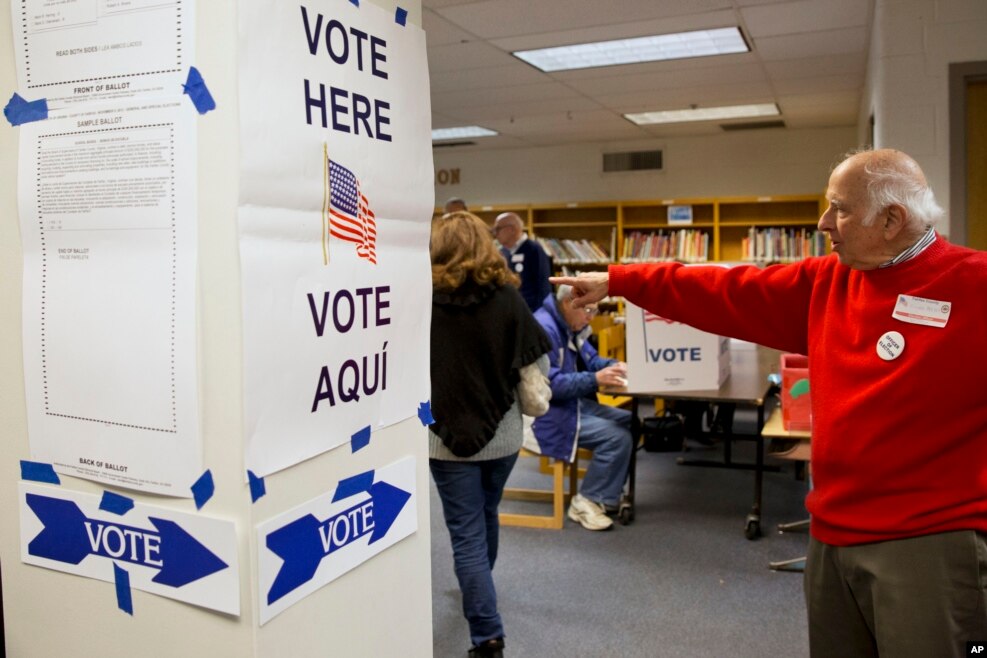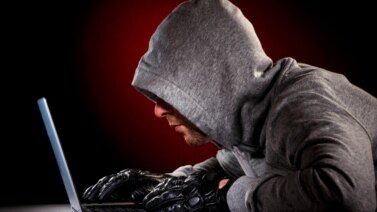
As recently as 2014, people could use WiFi to connect to voting machines inside certain voting places in the state of Virginia. They simply had to be nearby. Once connected, they could interfere with ballots.
That major problem in election security has been fixed. Virginia stopped using those machines last year.
But election cybersecurity is getting a closer look.
Republican Party presidential nominee Donald Trump has repeatedly suggested that the election in November may be rigged. And, a politically sensitive hacking of the Democratic National Committee computer system increased public concern about election cybersecurity.
Security experts say the risks are real. But, the probability of attacks on voting cybersystems is hard to estimate.
Every machine a possible target
David Wagner is a computer science professor at the University of California at Berkeley. He worked on a 2007 statewide examination of California's voting system.
He says a sophisticated attacker could hack machines and steal votes. He says every machine is at risk. But, such a hack would not be easy, he says.
"It would require considerable technical sophistication. And it would require someone to be physically present in each county, tampering with at least one machine in each county. This is not something that some random teenager can do over a weekend. It's not something that can be done from across the world over the Internet."
Hard-copy ballots help
The best defense against cheating is a system that has a hard-copy ballot and a system in place to look for ballot irregularities.
These systems are on the rise. This November, 75 percent of voters across the United States will vote on machines that retain a hard copy of their choices, says Verified Voting. It is an election observation organization.
Also, 26 states require ballot audits after the voting.
But that leaves 25 percent of voters entering ballots with no paper copy. And nearly half of the 50 states do not require audits.
Wagner says a lot more can and should be done to improve cybersecurity. But, he adds, "We've come a long way in protecting our elections."
Locks and keys
If attackers want to hack voting machines, they would have to get to them first.
"Most of them are under lock and key," says Denise Merrill, Connecticut secretary of state and president of the National Association of Secretaries of State.
Usually they are under two keys, in fact -- one for a Republican representative and one for a Democrat. Both keys are required to unlock the machine.
Local jurisdictions control their elections, and there are more than 7,000 jurisdictions nationwide. The voting equipment and methods differ widely from place to place.
As a result, security can differ widely. But, that also means an attack on one jurisdiction would not affect the others.
Secretary of State Merrill says someone who is really determined and had a very large operation might be able to attack. "But,” she says, “even then, it would have to be in very specific places."
Safety comes from understanding risks
Pam Smith is president of Verified Voting, the election observation organization. She says more states are already moving toward paper ballots and increased physical security of voting equipment.
"I think what will happen as we go forward is that people will want to have any and every extra tool they can to eliminate any lingering concerns or questions that people might have."
The U.S. Homeland Security Secretary, Jeh Johnson, spoke to state election officials Monday. He offered them help in finding and fixing election cybersecurity risks.
The department is considering designating the nation's election systems as “critical infrastructure.” The government provides extra resources to protect critical infrastructure.
Verified Voting's Pam Smith has another idea for anyone concerned about possible election cheating.
"It's not too late to sign up to be a poll worker. You can learn more about it from the inside out and see what some of the safeguards are.”
On November 8, those safeguards - as well as the presidential candidates - will be put to the test.
I'm Dorothy Gundy.
And I'm Kaveh Razaei.
VOA Steve Baragona wrote this report. Caty Weaver adapted his report for Learning English. Kelly Jean Kelly was the editor.
We want to hear from you. Write to us in the Comments Section.
Words in This Story
rigged - v. having fixed something for a desired result; to control, usually through dishonest methods
sophisticated - adj. having or showing a lot of knowledge or experience about the world; highly developed
tampering - v. to interfere with so as to weaken or change for the worse
random - n. without aim, direction or rule
irregularities - n. things that are not usual, often a sign of dishonest behavior
audits - n. complete and careful examinations of official records
jurisdictions - n. areas where a system of laws is used
determined - v. found to be the cause of or reason for something; to lean or find out
specific - adj. special; clearly and exactly presented
eliminate - v. to remove; to defeat and remove
linger - v. to stay somewhere after the usual or expected time; to continue to exist as time passes
designating - v. to officially choose someone or something; to be used as a name for something
poll - adj. of or related to a study of public opinion

